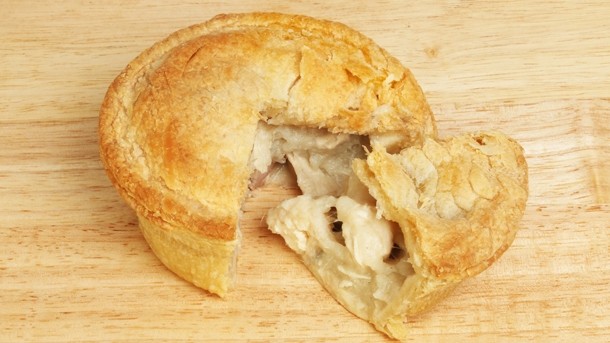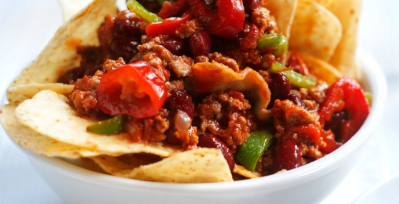The Pie Report
Life of pie: making the most of Britain's classic dish

In recent years, a resurgence in the popularity of hearty, more traditional pub food has seen the return of the one-time humble pie to many pub menus.
However, while an increase in pie sales is to be expected during the colder winter months, innovation in the category has seen a new, year-round demand for this great British classic, with many pubs and restaurants now centring their food offering around the pie.
In fact, recent research commissioned by prepared pastry supplier Jus-Rol Professional revealed 75% of people now enjoy a pie at least once a month, with more than 20% of those in the Midlands, Wales and Northern Ireland eating in excess of four pies a month.
With this in mind, licensees should consider using the approaching ninth British Pie Week (which starts on the 7 March) as an opportunity to target pie lovers and position this national favourite firmly in the top spot of their menus.
Once an underground activity, having been outlawed by Oliver Cromwell as a pagan form of pleasure back in 1644, pie eating is now a favourite British pastime. However, a move towards healthier eating, as well as a rise in the number of people with special dietary needs — one in a 100 people are thought to have an intolerance to gluten alone — means that pie producers must look at healthier alternatives, particularly when 80% of people surveyed for Jus-Rol would consider buying a healthier-option pie, if it was available.
According to Mintel, saturated fat and overall fat content are at the top of the list of factors UK adults worry about when it comes to food, with 44% of prepared meals buyers looking for products low in fat.
Some pie pubs have already taken steps towards healthier alternatives. The Handmade Pie and Ale House, in Weymouth, Dorset, for example, offers low-calorie ‘smart pie’ options as part of its home-made pie menu.
For pie manufacturer Oliver James Foods, gluten-free is the company’s biggest growth area. The Enfield, north London-based firm, which saw a 46% increase in gluten-free pie sales last year, offers a gluten-free Portobello mushroom and mascarpone pie as part of its Proper Pie range.
While the company’s data reveals that, within gluten-free, the fastest growing category is vegetarian, managing director Kevin Morel is keen to point out the need to change people’s perceptions that all gluten-free products are also meat-free.
Gluten-free beef and red wine pie
The firm recently launched a gluten-free beef and red wine pie after research suggested there are many meat eaters looking for gluten-free products.
British Pie Awards winner James Hedges, of the Biddestone Arms, near Chippenham, in Wiltshire, has also seen growing demand for his gluten-free meat pies.
The pub’s gluten-free steak and ale shortcrust pastry pie was the winner of the Free From category at the 2015 British Pie Awards and has seen a 90% increase in sales of its gluten-free pies over the past year.
However, away from meat fillings, it is estimated that non-meat options will appeal not only to the estimated 47% of vegetarian, vegan and flexitarian adults in the UK, but also to customers looking for a lighter option.
Finding that many of its customers are eating a little less meat these days, pie supplier Pieminister has recently launched a recipe competition designed to find a meat-free pie good enough to lead its British Pie Week celebrations.
Top pies to try
1. The classic: steak and ale pie
2. Spinach and feta filo pie
3. Game pie
4. Traditional pork pies
5. Venison and red wine pie
6. Sausage and egg pies
7. Fish pie
8. Fergus Henderson-style rabbit pie
9. Cheese and potato pie
10. For the more adventurous chef - vegetable biryani pie
The competition is the first stage in the company’s campaign, which aims to encourage customers to #TryAVegPie. Tristan Hogg, Pieminister co-founder and managing director, says: “We want to prove that the pies Britain is so famous for can be just as great without meat. Our Vegetarian Society-approved Heidi and Wild Shroom Classics have always been as popular as our steak and chicken pies.”
From British Pie Week onwards, the company plans to promote the national Meat Free Mondays campaign across all of its cafés and restaurants, when the winning meat-free pie will launch. Every Monday, Pieminister’s full range of vegetarian pies will be available at a lower price to encourage even the most carnivorous of pie eaters to give vegetarian pies a try.
Quality also continues to be a main focus of a successful pie offering, with home-made products reaping more sales for pub chefs — 79% of UK consumers polled were prepared to pay more for a home-made pie when eating out in pubs (Jus-Rol).
Morel of Oliver James Foods agrees that the biggest growth area, both for his manufacturing company and for operators generally, comes from premiumisation.
“There is a need to offer premium products worthy of consumers’ expectations — expectations that are being driven upward by their experience of fine-dining establishments, celebrity chefs and by the likes of Marks & Spencer and Waitrose who have brought premiumisation to the retail sector,” he says. Linked to this ongoing quest for quality are provenance and regionality which, according to Morel, continue to be big drivers for the company, forming part of the continuing trend towards locally sourced foods.
Although a favourite food among traditionalists, there is no doubt that those pie makers staying one step ahead in terms of flavour and innovation will reap dividends.
Venison and Stilton pie
Signature pies, such as the venison and Stilton pie served at the Lamb Inn in Spaxton, Somerset, offer a point of difference, which will drive year-round sales, while unusual flavour combinations, such as those on offer at the Piebald Inn in Hunmanby, North Yorkshire, generate ongoing interest and demand.
Licensee Jon Allen has recently launched pie taster nights at the pub to encourage diners to try some of the more unusual recipes on its 50-strong pie menu.
Mini versions of the Peruvian Paso (diced goat marinated in lager) and the Heavyweight Hunter (all-day breakfast items such as sausage, bacon and black pudding) encourage diners to be more adventurous in their pie choices.
According to Morel, there is increasing demand for spicier flavours within the category. “As luck would have it, the demands being placed on the food industry to reduce salt content in recipes has coincided with increased consumer demand for spicier products” he says. “Reducing salt can make a dish taste very bland but, fortunately, we have been able to compensate for this by returning that flavour and seasoning via the use of spicier ingredients” he adds.
As demand for a slice of pie grows, so too does the number of pubs that have opted to make pies the main focus of their food offer. Young’s pub the Windmill, in Mayfair, has been selling pies for 21 years, with its award-winning steak and kidney pie forming the foundation of the pub’s year-round pie menu.
The pub serves between 700 and 1,000 pies a week, with its dedicated first-floor restaurant, the Pie Room, offering pie specials as well as pie feasting menus alongside the regular eight-strong pie menu. The pub also offers regular pie nights via its Pie Club and has its own YouTube channel where people can see for themselves how the pub’s pies are made.
Others, such as Suffolk pub retailer and brewer Greene King, are opting to feature pies at certain times of the year. The leased and tenanted pub operator hosted its first ever pie festival, throughout November last year, at more than 100 of its Local Pubs across the estate.
The event, which was promoted socially with an #ispypie hashtag, featured a pie, created by Tom Kerridge’s team at the Hand & Flowers in Marlow, Buckinghamshire, at selected pubs.
Citing the festival as a resounding success, Anthony Hemmerdinger, managing director of Greene King’s Local Pubs division, says: “Over the four-week period, we sold just short of 15,000 pies — a substantial number — which shows how many people embraced the festival’s spirit and the quality of food it was offering.”
Whether or not the mainstay of a pub’s menu, the pie has stood the test of time and is here to stay, with clear opportunities for increased sales during British Pie Week and beyond.
The challenge for pub chefs is how to drive their pie offerings forward, marrying tradition with innovation. Healthier, free-from and meat-free options need to be considered while ensuring variety and quality of offer.






